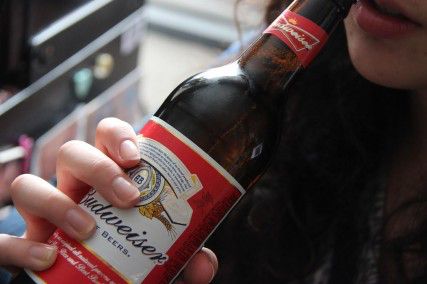
Boston University School of Public Health professor William DeJong is aiming to end the national debate over lowering the drinking age through his study, published Monday, which maintains that the minimum legal drinking age of 21 saves lives.
“Even though it’s not enforced very vigorously and is widely violated, the data on alcohol-related traffic fatalities and other indicators very clearly points to the law having a positive effect in reducing death and injury,” DeJong said.
The study, entitled “Case Closed,” cites historical increases of alcohol-related injuries when the MLDA was lowered to 18, arguing that decreasing the drinking age today would have similar results.
“The current law has served the nation well by reducing alcohol-related traffic crashes and alcohol consumption among youths while also protecting drinkers from long-term negative outcomes they might experience in adulthood, including alcohol and other drug dependence, adverse birth outcomes and suicide and homicide,” the study stated.
Choose Responsibility, a nonprofit founded by former Middlebury College President John McCardell, launched an initiative to reconsider the national drinking age in 2008. McCardell’s Amethyst Initiative drew signatures from over 100 college and university presidents, and verged on calls for a lower drinking age, according to DeJong’s study.
“I just want to make sure that everybody understands that if they consider this proposal [to lower the drinking age] — and they might consider it for any number of reasons — the idea that it’s going to improve public safety is completely wrong,” DeJong said. “If you make that change, do note that there will be consequences in lives lost and injuries made.”
DeJong said he wanted his study to discourage movements like the Amethyst Initiative from coming to fruition.
“In the very narrowest sense, I’m hoping that having all of this work discussed in one place will forestall any future efforts that might be launched to lower the drinking age,” he said.
The study also advocates that university presidents strengthen measures to enforce the MLDA.
“College and university leaders need to accept the fact that the age 21 law saves lives and is unlikely to be overturned,” the study stated. “They should move on to put into effect workable policies, stricter enforcement and other evidence-based prevention efforts that have been demonstrated to reduce underage drinking and alcohol-related problems on campus.”
Several BU students said the drinking age should be lowered to 18.
“If you can send someone to war at 18, someone can drive a car at 17 or 16 in some states, then they should be able to have a drink,” said Tracey Thompson, a School of Management sophomore. “The responsibility of fighting a war and driving and legally being an adult is more than taking a shot.”
Shreya Deshmukh, a College of Engineering junior, said she has lived in several different countries with a variety of legal drinking ages.
“Each one isn’t necessarily enforced the same amount,” Deshmukh said. “I don’t even believe in them that much. If you’re going to have a drinking age you should enforce it more strictly. The number doesn’t matter as much as how well it’s enforced.”
Brian Boman, a College of Arts and Sciences junior, said lowering the drinking age could cut down on irresponsible decisions made by underage drinkers.
“The culture that we have here, because the drinking age is 21, is that college students kind of hide away and drink in their rooms, and that’s where you have them handling the alcohol rather than a bartender or someone else handling the alcohol,” he said.
Boman said some young adults might not be responsible enough to handle the lowered drinking age, however.
“If they aren’t mature enough to know their own limits, then situations can arise in which other people can be hurt by their actions,” he said.
This is an account occasionally used by the Daily Free Press editors to post archived posts from previous iterations of the site or otherwise for special circumstance publications. See authorship info on the byline at the top of the page.



